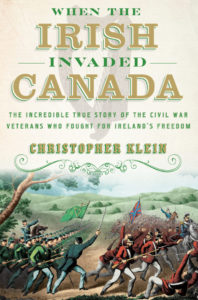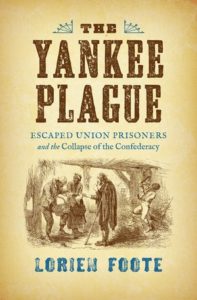Walt Lafty on “9th New Jersey Infantry and The Bermuda Hundred Campaign”
A campaign that was an integral part of Grant’s spring offensive plan of 1864, the fighting in Bermuda Hundred in May of that year is mostly forgotten. Overshadowed by the other battles in Grant’s push to Richmond, the Bermuda Hundred Campaign suffered thousands of casualties. With engagements that started at Port Walthall Junction on May 6, the campaign concluded at the second battle of Drewry’s Bluff on May 16 with over 6,000 casualties in that final battle alone.
It ended with the famous quote on the resulting situation for Union Commanding General Benjamin Butler, that he “was in a bottle . . .the enemy had corked the bottle”. It was also a campaign in which the 9th New Jersey Volunteer Infantry Regiment would suffer its greatest losses of the war. The 9th was the only New Jersey Infantry Regiment in the entire Army of the James. There were also two artillery batteries representing the state of New Jersey.
Walt Lafty is a member of the Old Baldy CWRT and the Delaware Valley CWRT where he is a Board member as well as a member of the Preservation Committee. He also serves as Secretary for the Baker-Fisher Camp #101 Sons of Union Veterans of the Civil War, located in Hatboro, PA. In addition, Walt is the Research Administrator for the G.A.R. Museum and Library in Philadelphia.






